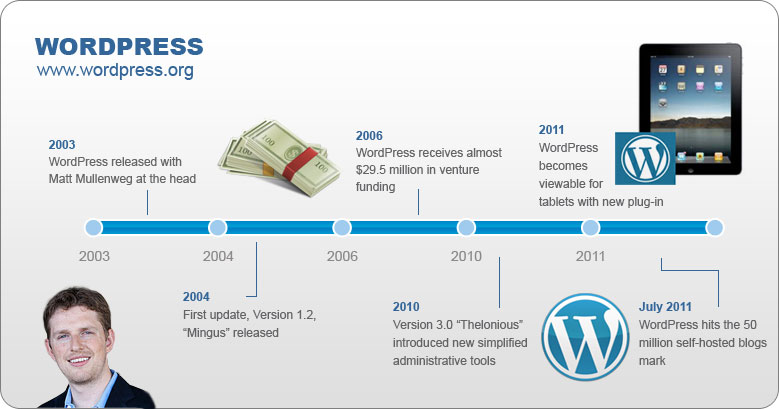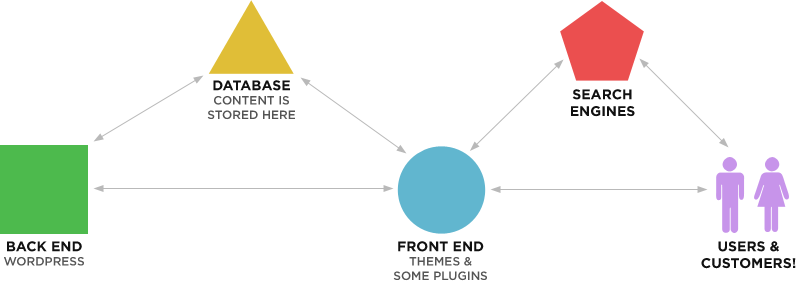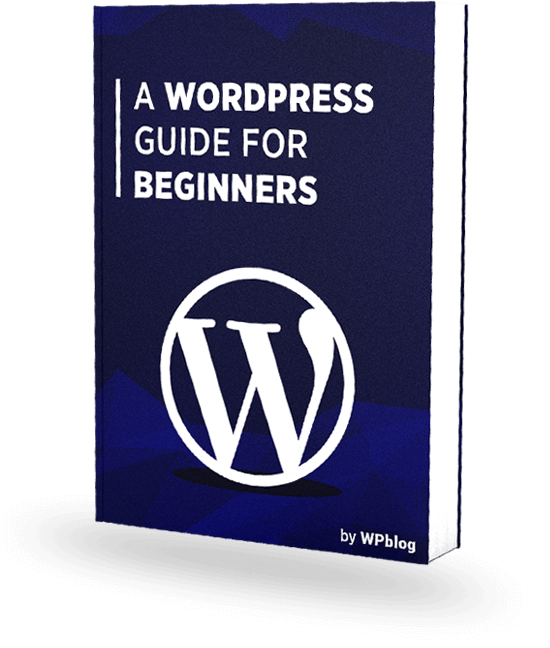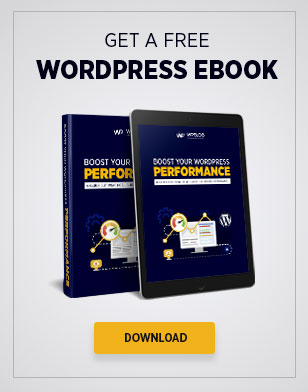Why You Should Use WordPress A Small Guide For Beginners (2019)

As WordPress is almost 14 years into its existence, it is fast becoming the de-facto standard for web development. It is an open source content management system enabling users to easily manage and build websites.
What is WordPress
In this introductory article, I will be outlining what WordPress is. A brief history of WordPress and how it works. The first thing as a naive CMS (Content Management System) user, one should be aware of is how to install, set-up and customize WordPress websites.
Let’s take a look at the history of WordPress.
1. A Byte in WordPress History
While stepping up the traditional hierarchy, we understand that B2 Cafelog initiated the first project on CMS. However, the history of WordPress dates back to the year 2003. Matt Mullenweg, under the company name, Automatic, designed an elegant architecture of a publishing system based on PHP and MySQL. It was licensed under GPL.
How it all initiated. Let’s take a quick overview.
Due to lack of resources, B2 Cafelog abandoned the project which was critiqued in a positive manner by Matt Mullenweg back in 2003. Seeing his interest being developed, Mike Little asked Matt to team up with him and carry on the project forward—and WordPress came into being.
Once the project was launched, it created an enormous community around itself engulfing programmers from around the world within a decade. It became a favorite among bloggers and by 2006, WordPress started taking vital steps to empower not a specified market but the overall Internet.
Powering around more than quarter of the world’s websites, WordPress comes with an interactive admin panel with a nicely designed managing area for your website in the form of posts, pages or media. It offers thousands of themes and plugins for customization purposes.
2. How WordPress works?
Here is what WordPress does. It uses a user-friendly GUI to enable users to customize and manage the content and design minimizing interaction of the user with the complex codes working behind the scenes. Before we discuss CMS, we have to understand how a website works.
Websites are built on HTML for coding and CSS for its design. There are two parts of the website, namely the front-end and the back-end. The front end (composed of HTML & CSS) is visible to the consumers around the world; however, the back end is where the website owners and developers are working on the site day in and day out. It is simply the admin area of the website.
First things first, after writing HTML and CSS codes, a website is uploaded to a server using an FTP (File Transfer Protocol). Once the website is live and you are looking to make changes, you simply download the website using an FTP software, make changes, and then upload it back to your host using the same FTP software.
If you are seeking to use duplicate patterns or material on your website on many pages, it seems like a tiring task. Copy the code again and paste it in the HTML pages where it is required. To many, it may still look easy. But let’s say you have a website of 100 pages and you need to change the top navigation bar, then you may have to make changes a hundred times.
With the introduction of PHP, dynamic content web files were introduced. To save your hassle, here WordPress comes in handy. It automates a lot of code-based functions inside a website. Website owners do not require to build menus, navigation, and other static elements, over and over again. They only need to worry about the dynamic content, such as text, images, sounds, and videos.
3. What can you build using WordPress?
Honestly speaking, you can pretty much do anything on WordPress. I have listed a few uses:
- You can create websites and blogs.
- You can create shops using WooCommerce.
- You can make forums using BuddyPress.
- You can simple mobile apps.
Through this website, you will see amazing use cases of WordPress. To get started, you should learn how to install WordPress on your computer (aka localhost). Godspeed!
Frequently Asked Questions
Q1. What is the use of WordPress?
WordPress is an easy to use open source platform that is used to create websites. It is a content managed system that allows users to control the elements of their website from the WordPress admin panel.
Q2. Can you use WordPress for free?
WordPress is itself a free software to use. You can download WordPress from the WordPress repository free of cost. The cost is of the hosting provider and domain that will cost you around $5 to $10.
Q3. Can WordPress handle heavy traffic?
WordPress was created for bloggers but now it is used by bigger brands and companies. Although it is true that for more complex websites, WordPress is usually a second or a third choice as people prefer Drupal or Joomla as they are more powerful and can handle heavy traffic websites.
Q4. Can WordPress be used for a business website?
WordPress can be used to create a business website. All you have to do is install a WordPress business theme and you are good to go.
Q5. Can wordpress be hacked?
WordPress is often a target for hackers as it is the most commonly used CMS around so yes, it can certainly be hacked. However if you notice the signs that your site is hacked, you will be able to prevent damage to your data.
Q6. Can wordpress blogs make money?
You can definitely make money through a WordPress blog by using affiliate marketing links, sponsored posts and more.
Q7. What is WordPress hosting?
Web hosting is the location where you store your website and its data. It’s the place from where your website’s files are called whenever someone tries to visit your website. WordPress hosting is the hosting that is dedicated towards WordPress websites.
Read more about WordPress hosting.
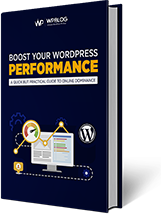
Create Faster WordPress Websites!
Free eBook on WordPress Performance right in your inbox.
